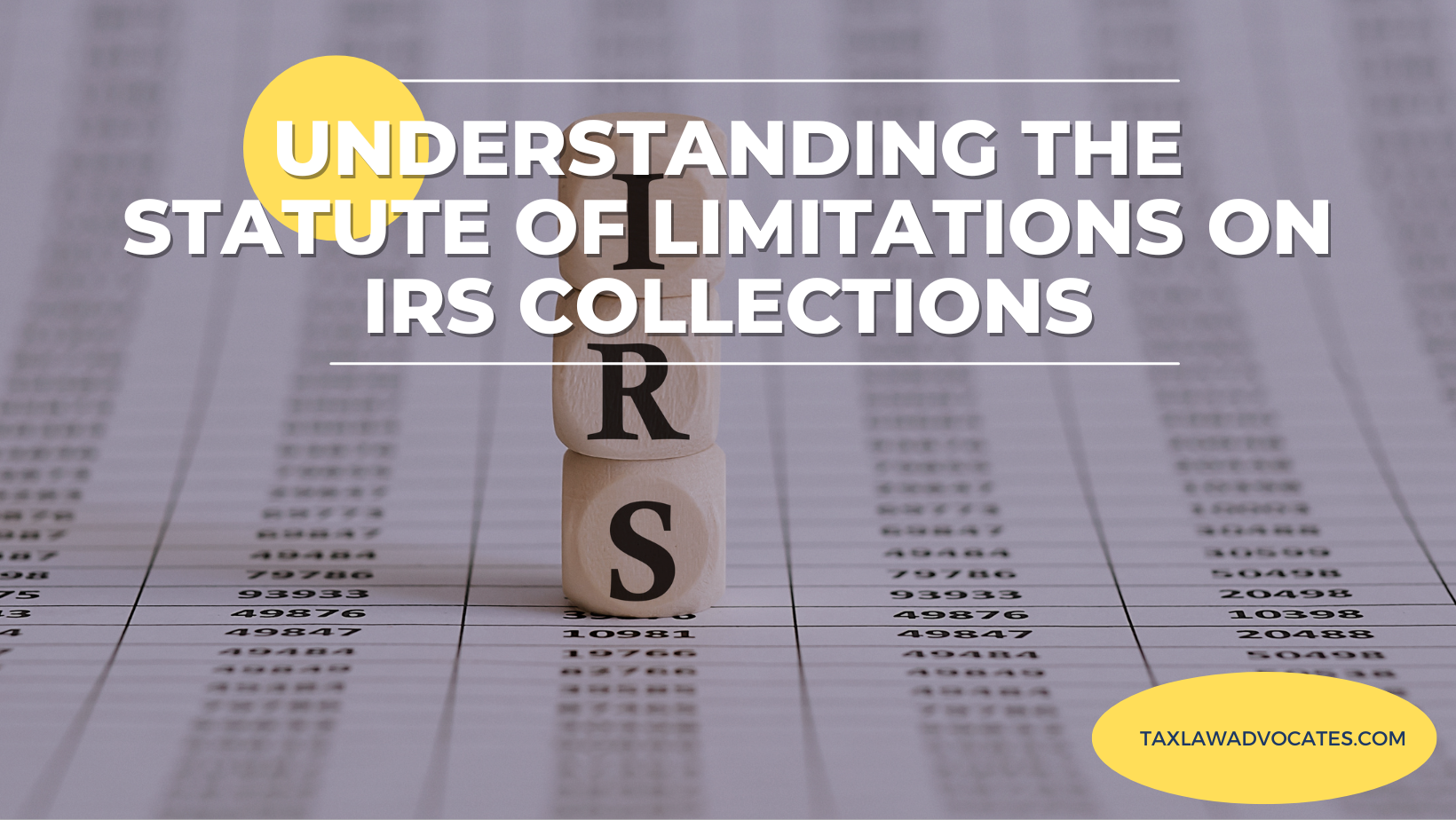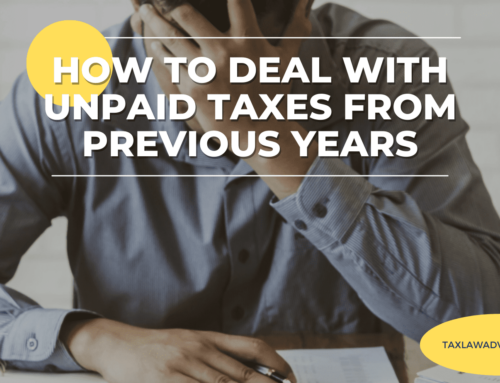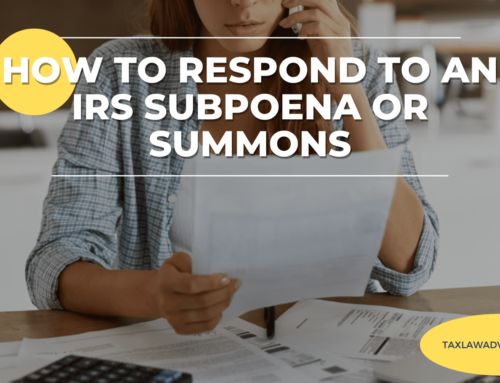How Long the IRS Can Pursue Tax Debts and What That Means for Taxpayers
If you owe back taxes to the IRS, one of the most important concepts to understand is the statute of limitations on collections. Many taxpayers don’t realize that the IRS doesn’t have an unlimited window to collect on unpaid tax debts. The time the IRS has to pursue collection is limited—typically 10 years—but as with most tax rules, there are nuances and exceptions.
At Tax Law Advocates, we help individuals and businesses navigate complex tax challenges, including IRS collection statutes, enforcement actions, and debt resolution. In this blog, we’ll explain the IRS’s statute of limitations on collections, how it works, what can pause or extend it, and how it can impact your tax strategy.
What Is the IRS Statute of Limitations on Collections?
The statute of limitations on IRS collections is the legal time frame during which the IRS can pursue taxpayers for unpaid taxes. Generally, the IRS has 10 years from the date the tax was assessed to collect the outstanding debt. This period is formally known as the Collection Statute Expiration Date (CSED).
Once the 10-year window closes, the IRS is legally barred from:
- Collecting additional payments
- Issuing levies or garnishments
- Enforcing liens related to the expired debt
This expiration can offer significant relief to taxpayers—but it’s not always simple.
When Does the 10-Year Clock Start?
The 10-year statute of limitations begins on the date the IRS officially assesses the tax. This is not necessarily the date you filed your return or the original due date. The assessment date is usually:
- When the IRS processes your filed return and records a balance due
- When a final decision is made after an audit
- When the IRS files a Substitute for Return (SFR) if you failed to file
Knowing your exact assessment date is crucial for calculating the Collection Statute Expiration Date. You can request your IRS account transcript to determine when your tax was assessed and what your projected expiration date is.
What Happens When the CSED Expires?
Once the 10-year period ends, the IRS can no longer enforce collection actions. This means:
✅ The IRS must stop all collection efforts related to that tax debt
✅ You are no longer legally obligated to pay the remaining balance
✅ Tax liens associated with that debt may be released
However, the IRS won’t automatically notify you when your CSED has passed. That’s why it’s important to monitor your account or consult with a tax professional to ensure the expiration is acknowledged and enforced.
What Can Extend or Pause the 10-Year Period?
Although the 10-year rule sounds straightforward, there are multiple events and actions that can suspend or “toll” the statute, effectively stopping the clock. These include:
Filing for Bankruptcy
While you’re in bankruptcy—and for an additional six months afterward—the statute of limitations is paused.
Submitting an Offer in Compromise (OIC)
If you submit an Offer in Compromise, the collection statute is suspended while the IRS considers your offer and for 30 days after rejection or acceptance.
Requesting a Collection Due Process (CDP) Hearing
When you request a CDP hearing, the statute is paused during the review and for a short time after the determination.
Being Outside the U.S.
If you leave the United States for six months or more, the statute is suspended for that period.
Entering into an Installment Agreement
While the statute typically continues to run during an installment agreement, certain agreements or reinstatements may involve waivers that extend the timeline.
Litigation
If you sue the IRS or are involved in a Tax Court case regarding your liability or collection actions, the collection period may be suspended during the legal proceedings.
Because of these factors, your actual CSED can be years beyond the original 10-year timeline. This makes it critical to understand which events apply to your situation and how they may affect your collection expiration date.
Can the IRS Extend the Statute?
In most cases, the IRS cannot unilaterally extend the 10-year statute. However, there are exceptions:
- Waivers: In the past, the IRS sometimes required taxpayers to voluntarily waive the statute to qualify for certain agreements. Today, these waivers are rare, but some older agreements may still be active.
- Signed Agreements: Some payment plans or settlement agreements may include language that extends the collection period.
You should always review any documents the IRS asks you to sign with a qualified tax attorney to ensure you’re not inadvertently extending the IRS’s collection rights.
Strategic Use of the Statute in Tax Resolution
If you’re nearing the end of your 10-year CSED, it may be in your best interest to avoid actions that toll the statute. For example, submitting an Offer in Compromise could pause the clock and give the IRS more time to collect—especially if the offer is rejected.
On the other hand, strategically managing your financial disclosures and negotiations with the IRS can help you ride out the clock if you’re already close to expiration. At Tax Law Advocates, we often help clients build resolution strategies around their CSED timelines, ensuring that any settlement or agreement is in their best interest.
Why You Need a Tax Professional
Trying to navigate IRS statutes and collection procedures on your own can be overwhelming—and mistakes can cost you years of extra financial burden. A skilled tax resolution attorney can:
- Review your IRS transcripts and calculate your exact CSED
- Identify tolling events that may have extended your statute
- Help you avoid actions that unnecessarily pause the clock
- Negotiate installment agreements or OICs that protect your interests
- Represent you in disputes and ensure the IRS complies with your expiration date
At Tax Law Advocates, we’ve helped thousands of taxpayers reduce or eliminate IRS debt by leveraging the statute of limitations and pursuing strategic relief options.
Get Help from Tax Law Advocates Today
If you owe back taxes and want to know how long the IRS can legally pursue you, the answer depends on your specific case—and you shouldn’t guess.
📞 Call Tax Law Advocates at 855-612-7777 to schedule a confidential consultation. We’ll review your situation, calculate your statute expiration, and develop a customized plan to help you protect your rights, minimize your exposure, and move forward with confidence.
You don’t have to face the IRS alone. Let our experienced tax attorneys stand between you and the IRS so you can focus on your life and business without the stress of looming tax debt.






